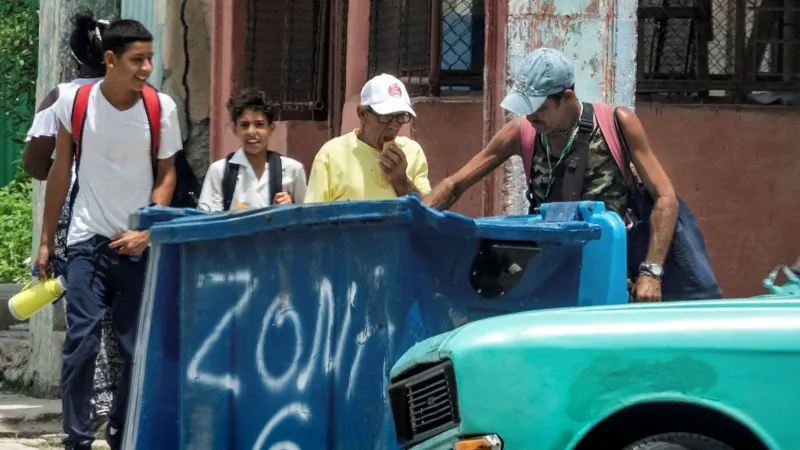UK public 'failed' by governments which prepared for 'wrong pandemic' ahead of COVID-19, inquiry finds
The UK's citizens were "failed" by their governments' processes, planning and policy ahead of the COVID-19 pandemic, a public inquiry has found.

There were more than 235,000 deaths involving COVID-19 in the UK up to the end of 2023 and a report published today says some of the "financial and human cost may have been avoided" had the country been better prepared for the deadly outbreak in 2020.
It is the first of nine reports to be published by the UK COVID-19 Inquiry and examines the state of the UK's structures and procedures in place to prepare and respond to a pandemic.
The 83,000-word document details "several significant flaws" including preparing for "the wrong pandemic".
Baroness Heather Hallett, the inquiry chair, is calling for "radical reform" as she makes 10 recommendations, including a major overhaul of how the UK government prepares for civil emergencies.
"Never again can a disease be allowed to lead to so many deaths and so much suffering," Lady Hallett writes in an introduction.
Speaking after the report's publication, she said: "I have no hesitation in concluding the processes, planning and policy of the civil contingency structures across the UK failed the citizens of all four nations.
Key recommendations include a radical simplification of systems, holding a UK-wide pandemic response exercise at least every three years and the creation of a single, independent statutory body responsible for the preparedness and response of the whole system.
Prime Minister Sir Keir Starmer said: "Today's report confirms what many have always believed - that the UK was under-prepared for COVID-19, and that process, planning and policy across all four nations failed UK citizens.
"The safety and security of the country should always be the first priority, and this government is committed to learning the lessons from the inquiry and putting better measures in place to protect and prepare us from the impact of any future pandemic."
The inquiry received 103,000 documents, 213 witness statements and heard from 68 witnesses for the first module in June and July last year, with hearings for later phases expected to continue until 2026.
UK was 'ill prepared'
The report states the UK "lacked resilience" in 2020 and was "ill prepared for dealing with a catastrophic emergency, let alone the COVID-19 pandemic that actually struck".
A slowdown in health improvement, widening health inequalities and high pre-existing levels of long-term illnesses, such as heart disease, diabetes and obesity, made the country "more vulnerable", while public services were "running close to, if not beyond capacity," it says.
The inquiry heard evidence on the potential impact of austerity measures and, while recognising the pressure on politicians to make tough decisions over the allocation of resources, the report says: "Proper preparation for a pandemic costs money."
"The massive financial, economic and human cost" is proof money spent is "vital" and "will be vastly outweighed by the cost of not doing so," it adds.
'Significant flaws'
"Significant flaws" highlighted include preparing for "the wrong pandemic", with the focus on a flu pandemic "inadequate" for the global pandemic that struck, the inquiry found.
The lack of "a system that could be scaled up to test, trace and isolate" people was highlighted as a major flaw, while advice to ministers was often undermined by "groupthink".
"The inquiry has no hesitation in concluding that the processes, planning and policy of the civil contingency structures within the UK government and devolved administrations and civil services failed their citizens," the report says.
The next pandemic
Lady Hallett said all her recommendations must be implemented to prepare for a future pandemic, which could be "even more transmissible and lethal" and "is likely to occur in the near to medium future".
"Unless the lessons are learned and fundamental change is implemented, the human and financial cost and sacrifice of the COVID-19 pandemic will have been in vain," she said.
"The harrowing accounts of loss and grief given by the bereaved witnesses and others who suffered during the pandemic serve to remind us why there must be radical reform."
A spokesperson for the COVID-19 Bereaved Families for Justice UK group, said they were "relieved" by many of the recommendations in the "hard hitting, clear-sighted and damning" report.
But said: "While the inquiry has diagnosed much of what undermined our response, Lady Hallett has not gone far enough in setting out how we can challenge, address and improve inequalities and capacity of public services as opposed to just understanding the effects of these failures".
At a news conference later, Dr Saleyha Ahsan, from the same group, said she and other bereaved healthcare workers are "fighting to be heard" by the inquiry.
"Please listen to those who were there. We feel it every single time we go back to work. We don't need to fight to be heard."
Professor Phil Banfield, chair of the British Medical Association (BMA) UK Council, described the initial findings as "woeful" and said "the state failed its people".
-sky news






